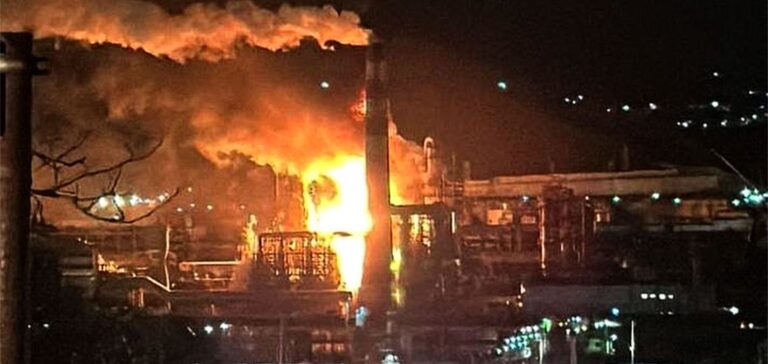Tensions between Ukraine and Russia continue to impact strategic energy infrastructure. On Sunday night, the Ukrainian military carried out multiple strikes on Russian oil and gas facilities, causing fires and disruptions at key industrial sites.
Targeted Strikes on Volgograd and Astrakhan
Ukrainian authorities confirmed they attacked the Volgograd refinery and the Astrakhan gas processing plant. These infrastructures play a key role in Russia’s energy industry, particularly the Volgograd refinery, which, according to Ukraine’s Security Service (SBU), processes nearly 6% of Russian oil.
The Astrakhan plant, operated by Gazprom, suffered significant damage, leading to its temporary shutdown and the evacuation of its personnel. Fires were reported at both sites, confirmed by local Russian authorities. The processing capacity of these facilities and the speed of their restoration remain under close watch.
Reactions and Market Consequences
In response to these attacks, the Russian Ministry of Defense stated that it intercepted and destroyed 70 Ukrainian drones across multiple regions. Simultaneously, Russia launched an airstrike on Ukraine, damaging energy infrastructure and triggering emergency power outages in nine regions, including Kyiv.
The successive attacks on Russian energy infrastructure since the beginning of the year raise concerns about production continuity and export stability of oil and gas. Any prolonged disruption could impact supply flows, particularly to European and Asian markets, which remain dependent on Russian hydrocarbons.
Geopolitical Impact and Outlook
These strikes mark the fifth successful attack on Russian oil infrastructure since January, according to the SBU. They align with Ukraine’s retaliatory strategy against Russian offensives on its energy network. As the conflict nears its third year, the intensification of strikes on strategic targets could reshape energy supply dynamics and influence investor decisions in energy markets.
Operators are closely monitoring the situation, particularly the potential impacts on crude oil and gas prices, which have already faced high volatility since the start of the conflict. The evolution of tensions and the military strategies of both sides remain key factors in maintaining the balance of energy exchanges in the coming months.






















